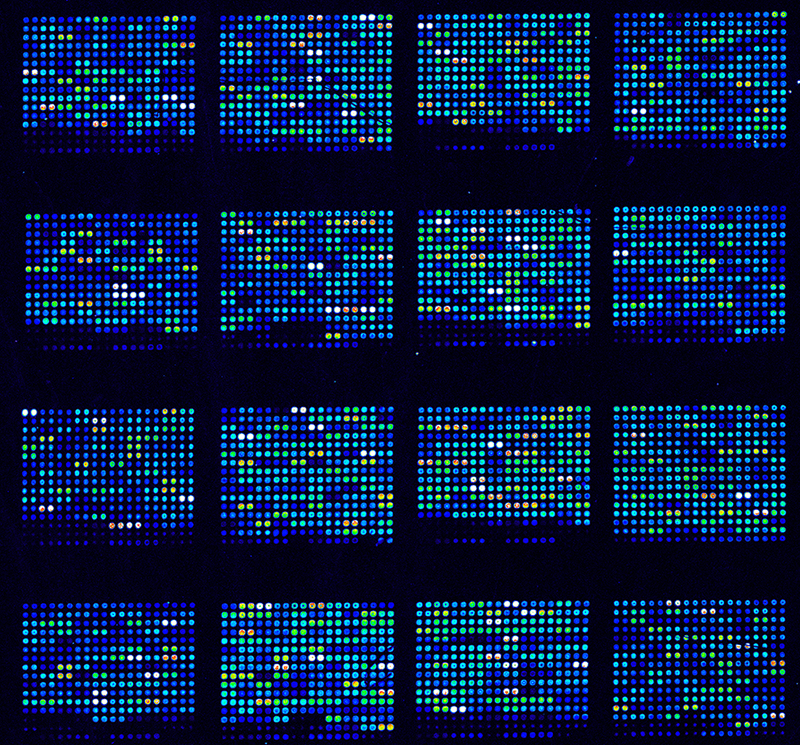List of chromosomes » Chromosome 10
Gene… Ethics
Medication: foreign substances
Emily takes an antidepressant which is regarded as a foreign substance by her body and therefore destroyed. The protein which does this is known as CYP2C19 and is produced by each one of us. However, no one has exactly the same version.
Prescription by trial and error
These variations in CYP2C19 are responsible for variations in the speed with which the antidepressant is destroyed. If Emily’s CYP2C19 destroys the antidepressant too fast, then the drug will not have had the time to act. In which case, higher doses have to be prescribed. On the other hand, if the protein acts too slowly, the antidepressant will remain in Emily’s body for too long, which could cause undesirable side effects, and smaller doses will have to be prescribed.

Personalised prescription
This is where DNA tests come in. A sample of Emily’s DNA is taken from her mouth and then analysed by way of a ‘DNA chip’. This technique determines the variations in Emily’s CYP2C19 gene. Variations are shown by dots, which are more or less bright, on a grid about one square centimetre in size. The thousands of dots obtained are scanned by microscope and analysed with the help of bioinformatics programs. Depending on the results, Emily’s doctor will be able to decide on the best dose to prescribe.

What about the ethics?
In Emily’s case, by discovering her particular version of CYPC19, the doctor is able to prescribe a treatment which is adapted to his patient. What about other genes?
We know, today, that certain genes are associated with diseases such as cancer for example. Getting to know which version of these genes we possess could help to detect certain forms of cancer and perhaps even encourage treatment before it emerges. These new applications in genetics are a source of great hope but raise a number of legal, ethical, economical and even psychological issues.
Such questions are paramount for the evolution of medicine and are subject to public debate.
- Do we want to know everything about our genome?
- Who will have access to our genetic data?
- Should medicine be given limitations?
- How do you announce the risk of developing a certain disease?
- And to who?
- Is it good to anticipate everything?

External links
Bioinformatics expert: Study the expression of the CYP2C19 gene
Internal links
What is a protein?
What is a mutation?
What is a cancer?
What is a drug?
Chromosome 6: Motions of the invisible
Chromosome 13: A taste of happiness


